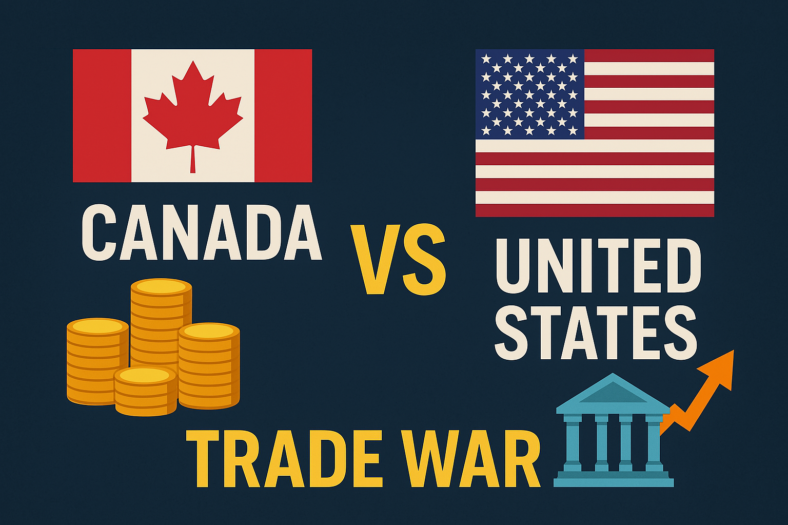If you’re in the middle of your mortgage term, you might be considering a rate or mortgage change. However, breaking your mortgage contract early often comes with a pre-payment penalty to cover the lender’s costs.
Why Would You Want to Change Your Mortgage?
There are several reasons you might consider making changes to your mortgage during your term:- If rates are on the rise, you might be planning to break your fixed-rate term later to secure a lower rate.
- You may want to increase your pre-payment privileges to pay down your mortgage faster.
- Switching from a variable rate to a fixed rate might suit your financial goals.
- If you’re moving, you may want to transfer (or port) your mortgage to your new property.
- You might be in a position to pay off your mortgage early.
What’s the Cost of Breaking a Mortgage?
The penalty for breaking a fixed-rate mortgage is generally higher than that for a variable-rate mortgage. This is due to the differing costs for lenders when managing fixed-rate loans. There may also be additional fees for breaking your mortgage, depending on your lender’s policies. For fixed-rate mortgages, the penalty is often calculated using the Interest Rate Differential (IRD) method, which tends to result in a higher charge than the 3-month interest method used for variable-rate mortgages.How Is the Interest Rate Differential (IRD) Calculated?
While the IRD calculation varies from lender to lender, here’s a general breakdown:- The lender will compare the interest owed at your original rate (which could be either the contract or posted rate) to the interest owed at their current rate.
- Subtract the lender’s current rate from your original rate.
- Multiply this difference by the remaining years on your term.
- Multiply that result by the size of your mortgage and divide by 100 to get your IRD penalty.
For Variable-Rate Mortgages
Breaking a variable-rate mortgage is often simpler and cheaper, as the penalty is based on 3 months’ interest. To calculate it:- Determine the monthly interest you’re currently paying (excluding principal).
- Multiply that by 3, and that’s your penalty.
Does Breaking Make Sense to Get a Lower Rate?
Let’s consider three clients to see if breaking their mortgage early for a lower rate is financially beneficial.Case 1: Sarah’s 5.5% Fixed-Rate Mortgage
Sarah has a $150,000 mortgage, which she secured 2 years ago at a 5-year fixed rate of 5.5%. She’s seen a new rate of 3.8% and is wondering if it makes sense to break her mortgage to switch. Here are the numbers:- With a 5.5% fixed rate, her bank’s current rate for the remaining 3 years is 4.3%.
- Her IRD penalty would be $4,000.
- By switching to the new 3.8% rate, Sarah would save $1,500 over the penalty.
Case 2: Mark’s Larger Mortgage
Mark has a $700,000 mortgage with 3 years left on his fixed-rate term of 5.5%. He wants to switch to a 3.8% rate and came to us for advice. Here’s what we found for Mark:- With a 5.5% rate, his bank’s current rate is 4.3%.
- His IRD penalty would be $28,000.
- Switching to the new rate would save him $9,500 after the penalty.
Case 3: Emily’s Variable Rate
Emily has a $350,000 mortgage with 3 years left in her 5-year variable-rate term at 5.5%. She’s looking to switch to a fixed rate of 3.8%. For Emily:- The 3-month interest charge to break her variable-rate term would be $5,800.
- If she switches to the 3.8% fixed rate, she would save $12,000 over the penalty.
What If You Have No Choice But to Break Your Mortgage?
Sometimes, life requires you to move or sell your home during your mortgage term. In these cases, your mortgage broker can help you navigate the penalties and find the best new mortgage for your situation.Need to Pay Off Your Mortgage Completely?
If you’re planning to pay off your mortgage early, you’ll face penalties that align with your mortgage type, plus discharge fees and any other administrative costs from your lender.Get Expert Advice to Save More
Even when lower rates are available, breaking your mortgage may not always be the best financial move. We can help you analyze your situation and decide if it makes sense to switch now or wait until your renewal. Our team of unbiased, highly trained brokers is ready to assist you online, by phone, or in person. Whether you need advice on breaking your mortgage or securing a new rate at renewal, we’ve got you covered. Let us help you make the best decision for your financial future.FAQ
Most lenders charge a penalty when you break your mortgage early, typically calculated as either an Interest Rate Differential (IRD) or 3-month interest charge, depending on whether you have a fixed or variable rate mortgage.
Not necessarily. Even if you’re offered a lower rate, the savings must outweigh the penalties and fees associated with breaking your current mortgage. It’s important to do the math before making a decision.
Many lenders allow a portion of the penalty, usually up to $3,000, to be added to your mortgage. However, any amount over that would need to be paid out-of-pocket.
In some cases, you may be able to “port” your mortgage to a new property. This allows you to avoid penalties, but it depends on your lender’s policies and whether your new home qualifies.
The best time to break your mortgage is when the long-term savings from a lower interest rate exceed the costs of penalties and fees. A mortgage professional can help you determine if it’s worth it based on your unique situation.



















